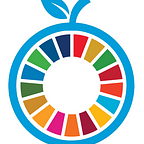If Nature Could Speak
By Philip J Lymbery, Global CEO of Compassion in World Farming
“If Mother Nature could speak, I believe she would weep.”
She would be incredulous at the way humanity has plundered and polluted her natural wealth and resources. In sadness at how more natural ways of food production have been sidelined, causing great cruelty to farmed animals and undermining the soil on which all our futures depend. And in disbelief at how remaining wildlands are being bulldozed and wildlife driven toward extinction.
Only recently, a report by Chatham House, Food System Impacts on Biodiversity Loss, developed in partnership with the United Nations Environment Programme and Compassion in World Farming, showed how intensification of agriculture has decimated wildlife and is affecting our ability to grow food in the future. The report finds that the way food is produced currently is “the primary driver” of biodiversity loss, with agriculture alone threatening 86 per cent of species deemed to be at risk of extinction.
In addition, the global Coronavirus tragedy, together with Swine flu and Avian flu a decade earlier, has shown how treating animals as mere commodities — be they farmed or wild — is like playing Russian Roulette with peoples’ health.
Our own future and the health of all life on Earth depends on us making peace with nature.
How to change is increasingly seen as reconnecting food production and nature through regenerative, agroecological farming combined with more balanced diets. Eating more plants and less and better meat from nature-friendly farms where, as sentient beings, farm animals can move freely and experience the joy of life. Where they can be mixed in rotation with crops without heavy doses of chemical pesticides and drugs. Where manures can fertilise the ground, turning dirt into soil.
The challenge of Covid-19 has shown how humanity is capable of great change in a short space of time. That we can all work together to protect one another.
The question now is, do we have the commitment and appetite to change food systems, diets and lifestyles in order to save our finely tuned life support system — the natural world?
In truth, we don’t have much choice; it’s more a question of how. The answer lies in all of us playing our part: business, finance, governments, the UN and civil society, working in partnership to transform the food system to make it sustainable, equitable, inclusive, safe and secure.
Which is why it is crucial to seize the opportunity of this year’s UN Food Systems Summit not only to raise these concerns but explore solutions to address these.
Actions will speak louder than words.
Through the language of decline, nature is already talking to us with her actions. Now it is our turn to speak. But is the world listening and how will we answer?
The views and opinions expressed in this blog are those of the author and do not necessarily reflect the official policy or position of the United Nations Food Systems Summit.
